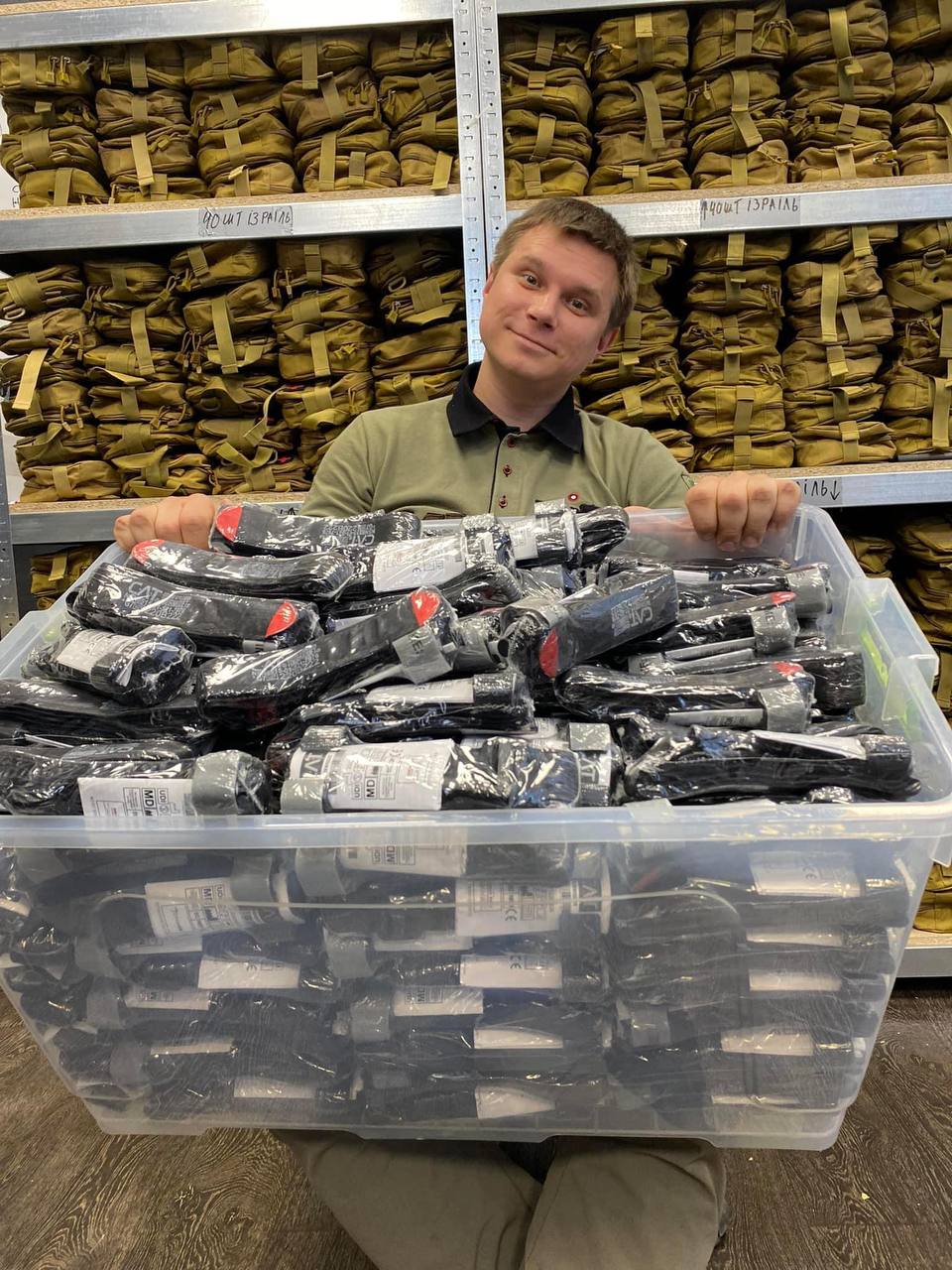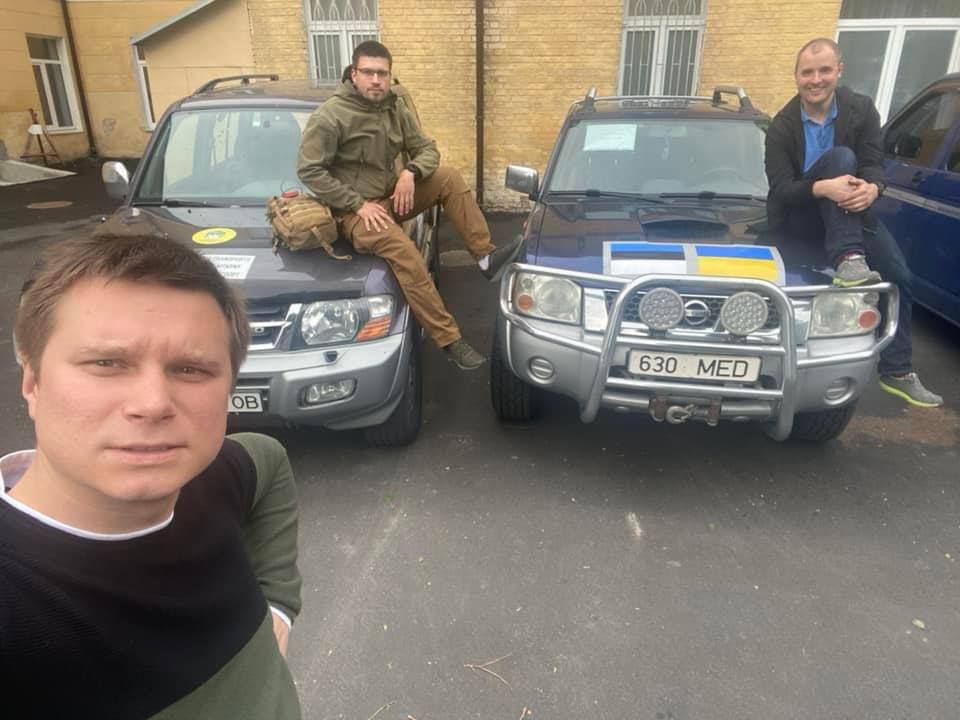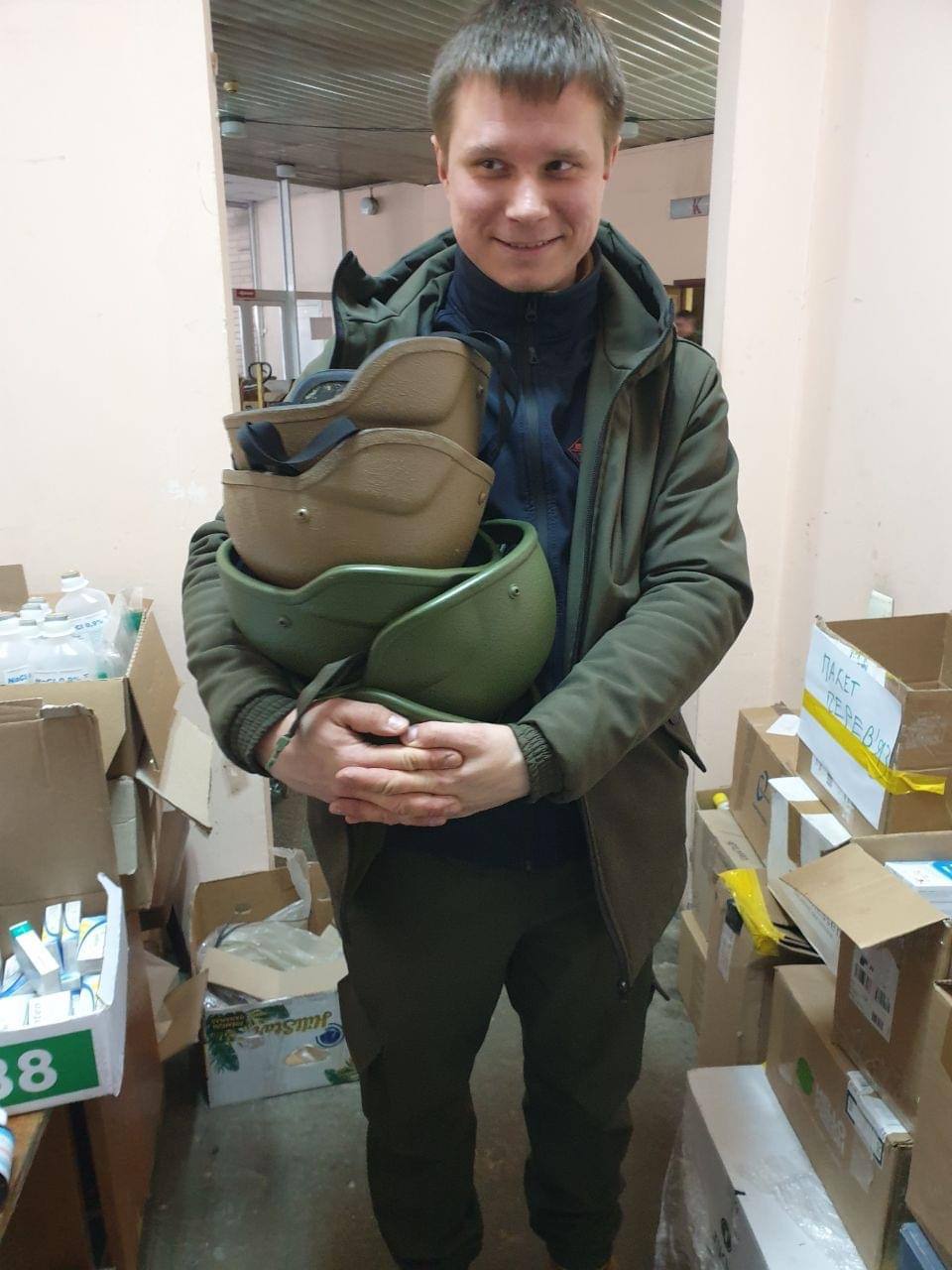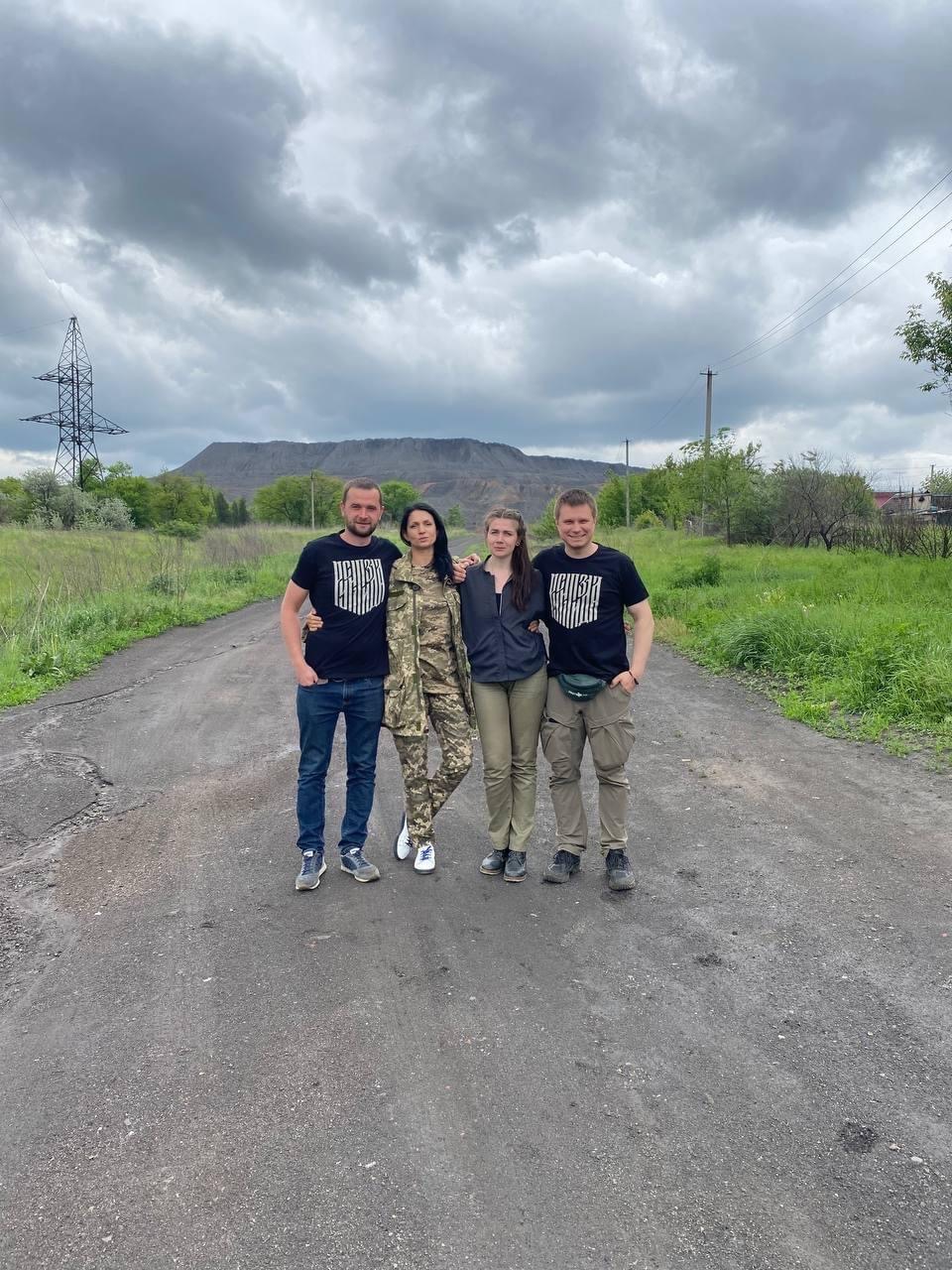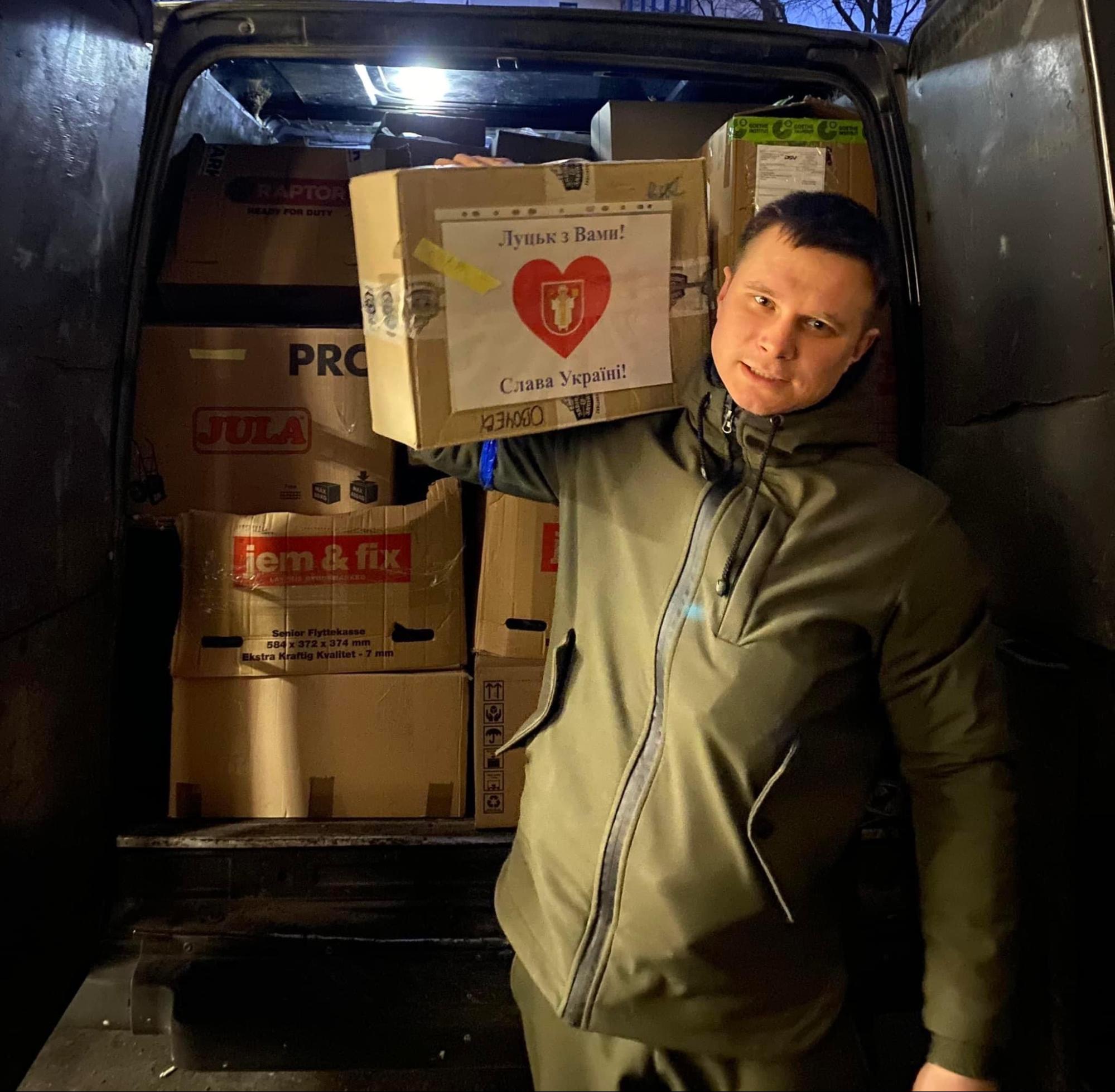
Rubryka, within the Face of Ukraine's Defense project, spoke with Vlad Samoilenko, the head of the Urban Crew public organization and, from the first days of the war, a volunteer who travels to Ukraine's biggest flashpoints and helps the Ukrainian army. We learn everything about the volunteer's life and work, fundraising, and the future of people, now assisting the Ukrainian Armed Forces to defend the state.
Volunteer's everyday life: unexpected exchanges and 7-day cycles
From the first days of russia's full-scale war, Ukrainians have been actively involved in helping our army: you likely wouldn't find a person who, at least once, hasn't helped bring Ukraine closer to victory. Volunteers have been the most active. Their work hasn't stopped since February. We asked Vlad Samoilenko what the volunteer's day was like:
"Every day, the calls start at 7:30 am. Now we get fewer calls, and the 'tension' isn't the same as in the first two months when the Kyiv, Chernihiv, and Zhytomyr regions had more active hostilities. As soon as the russians began to withdraw from the Kyiv and Chernihiv regions, we refocused our attention on the East. Weekdays and weekends are mixed up. You wake up in the morning, and it begins: meetings, calls, someone is handing over or selling something, and you go collect everything. Or you ask someone from the team to do it. Life consists of 'cycles' of 7-8 days with the final chord of going to the East. It's a slightly different routine because you leave, so to speak, in the afternoon, and, in the evening, you need to get to one of the destinations for the night somewhere in Dnipropetrovsk or Donetsk region, and the next day or two, you deliver aid to the locations of Donetsk and Lugansk regions. Then on the third or fourth day, you return to Kyiv. After, you start over again: traveling, receiving aid. We buy some aid ourselves, funds hand over something, and sometimes you can exchange the aid. We recently exchanged a thermal imager for a car, which was a very lucrative deal: the thermal imager went to the Luhansk region, and the car went to the Donetsk region; it's a double win-win. I'm thrilled, to be honest!"
Vlad and his team have already had eight trips to the East, and they're not going to stop. However, volunteers have to be quite unpretentious to living conditions:
"Sometimes you sleep on the floor in the apartment of one of your acquaintances… Friends or acquaintances, for example. We have women on our team: a driver and a coordinator, so we put them on the couch, and the guys lay on the floor in sleeping bags. That's great conditions. We had cases when it was cold, and we spent the night in kindergartens and schools, which were very poorly heated; then we had to sleep in two sleeping bags. We also spent the night in hostels. These are good conditions if we can sleep outside and have a warm shower."
Vlad's life hack: where to find fuel?
At first, our volunteer said there was no universal recipe. From experience, a volunteer said everything depended on social capital – contacts and acquaintances: some coupons were given to them, some had to be bought, and sometimes people helped and gave volunteers a can of fuel. But then he remembers:
"Yesterday, almost at midnight, taking my friend, I saw a small line at the gas station, so I drove up and refueled. So I have this life hack: refuel not during the day but at night or very early in the morning. Several times we were assisted by the military; for example, we recently drove into a position close enough to the enemy and broke a wheel: huge shrapnel of GRAD missile got us. Just as we entered our position and drove into a hangar, the Ukrainian soldiers immediately lifted the car, changed our wheels, and refueled us to the full tank. It turned out cool! So there are cases when we don't help the military, but they help us."
What are the basic safety rules for volunteers?
During the hostilities in the Kyiv region, Vlad and his team came under mortar fire, and one of the team members was wounded. The woman survived; she was given first aid, but Vlad Samoilenko warns others and urges them to follow safety rules. He says that each case depends on where you are, but there are universal tips:
- It is better to move quickly and not in convoys but one or two cars. Unfortunately, the volunteers who were in Chernihiv and moved in groups were more often hit by russians, leading to injuries and deaths.
- It's not advisable to drive in white cars if you're very close to the line of contact because it is too noticeable a car day and night.
- The driver must be psychologically stable.
- You should always have a jack and a spare wheel because there are a lot of fragments on the road, and if you are far away, neither the tow truck nor acquaintances will come to get you.
- If you see that you are heading towards enemy equipment, you cannot continue moving in this direction, turn around; because it is very long, you become a target, and the russians can quickly destroy you. Accordingly, in this case, you need to leave the car as soon as possible and move crawling towards the shelter.
About money
— How many hours does a volunteer need to raise funds for a car?
— In March, there were a few days when Anton Senenko, who has a larger audience and is a scientist and opinion leader, and I attracted about 250 thousand hryvnias in two or three days, no more. That was enough for the car and other needs. But lately, raising funds has been very difficult, and just a week ago, the number was also good, somewhere at the level of March: we managed to raise 200-250 thousand per car for the Ukrainian Armed Forces in a few days.
— Why, with the crazy support of Europe and America, do volunteers continue to "dress" our soldiers?
— Because the complexity of bureaucratic procedures does not limit a volunteer, and a volunteer is always faster than the state because the state needs to charter specific funding; for this, you need to vote, sign, purchase or find a manufacturer, or do something else. During this time, the volunteer can find options for the car or something else in one day. At each stage, the state has more restrictions. In addition, many things are delivered to us from abroad, and bureaucracy, as you know, is everywhere. Instead, volunteers save time. For example, two weeks ago, we brought a Nissan X-trail to the Luhansk region, then bought another car from abroad; now it is in Ukraine, and next week we will coordinate it in the Avdiivka direction. There are other cars that we worked on together, and currently, they are being registered in Estonia, and it takes a few days to overtake them and record them. Besides, we are also modernizing what the soldiers already have or updating. For example, if someone's uniform burned down, we bring a new one; by the time the state buys it, we have quickly assembled and got it. Or bulletproof vests. When I took a bulletproof vest at one of the positions, I realized that it weighed 12 kilograms. It isn't easy. And, of course, it's cool when instead of a 12-kilogram bulletproof vest, a soldier gets an 8-kilogram one. So it's a matter of upgrading.
What we need to be aware of about volunteers
We should understand that, besides a clearly defined amount for the purchase of a car or anything else, volunteers have fixed costs and unplanned expenses:
"Fixed costs are the purchase of fuel and mechanics services. Before and after each trip, the car needs repairing. For example, during the previous trip, the car broke down in a hazardous area, and we had first to find a welder, pay him for work, then take the car to an automobile repair shop; it cost almost 20 thousand hryvnias, although the car we drive is not rubbish. Regular trips require maintenance costs. Plus, the road to where we go is 1800 kilometers, so fuel costs are not small. Sometimes people don't realize it."
Sometimes people don't understand how to send help to another region of Ukraine. The initiative to help is always great, but you need to realize through whom to pass this help and not burden volunteers with unnecessary things:
"We bring medicine, tactics, and important parcels, and we, the volunteers, have memes about cookies and cereals. Sometimes we are asked to hand over diapers or chips, and then we explain that these things are, of course, necessary too, but we go to another territory and deliver another type of aid; our main client in the East is the military, then doctors, then proactive and progressive public figures and organizations, and for other needs, there are working branches of the Nova Poshta postal service."
What upsets volunteers?
"There's a specific category of citizens in the East—they're a minority—who haven't decided on how they identify. When we went to Chernihiv, we were greeted with hugs.
Some people say: 'You see, Melitopol surrendered without a fight, and they were not treated like Mariupol'; on the other hand, there are some settlements the russian orcs shell because the towns are standing in the way of the russian army's advancing and their tactics are scorched earth. For people who wanted to greet the 'russian world' and didn't want to evacuate if the authorities didn't push them to do so and if they weren't offered to leave these territories, everything turned out tragically."
What will happen to volunteers after the victory?
"In 2014, many men thought about what to do: to fight or not. Then I chose my path to work in the Kyiv State Administration because I thought I could be helpful to my city and state. It so happened that I looked into the departments that were aimed at the social good of the country or city.
I'm a road safety expert for the Ministry of Infrastructure Reform Support Team. The contribution and the project I am leading are the fronts I need. Therefore, I would very much like some people who already have minimal life experience, results-oriented work skills, coordination skills, project management and emotional intelligence, and team building to enter different structures and change certain areas. It's not politics but everyday work and service to your country, and we need it. We must do everything we can to be less disappointed, and the people who live here to have stayed here.
There is a particular way of evolution of communities and organizations. In the eight years since the russian attack began, presidents have changed, and foundations such as the Pritula Foundation have only developed and grown. For example, my NGO Urban Crew will work differently because most of our organization either volunteers or serves the Ukrainian Armed Forces. The more organizations there are that will help each other and push all sorts of 'petrified bureaucrats' of the last generation, the better."

"We went to ask people what help they needed": the story of three businesswomen who became "Caring cats"

"Cleaning up after ruscists": an environmental activist in his 60s gathers Kharkiv residents to clean up rubble

"Kitty the Defender" and "Ghost of Kyiv": a story of the boy with autism who helps the army
Newsletter
Digest of the most interesting news: just about the main thing




